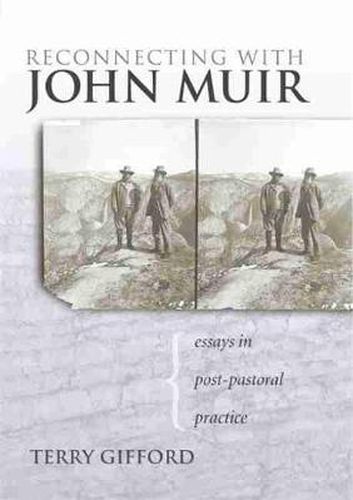Readings Newsletter
Become a Readings Member to make your shopping experience even easier.
Sign in or sign up for free!
You’re not far away from qualifying for FREE standard shipping within Australia
You’ve qualified for FREE standard shipping within Australia
The cart is loading…






Advancing for the first time the concept of
post-pastoral practice,
Reconnecting with John Muir
springs from Terry Gifford’s understanding of the great naturalist as an exemplar of integrated, environmentally conscious knowing and writing. Just as the discourses of science and the arts were closer in Muir’s day - in part, arguably, because of Muir - it is time we learned from ecology to recognize how integrated our own lives are as readers, students, scholars, teachers, and writers. When we defy the institutional separations, purposely straying from narrow career tracks, the activities of reading, scholarship, teaching, and writing can inform each other in a holistic
post-pastoral
professional practice. Healing the separations of culture and nature represents the next way forward from the current crossroads in the now established field of ecocriticism. The mountain environment provides a common ground for the diverse modes of engagement and mediation Gifford discusses. By attempting to understand the meaning of Muir’s assertion that
going to the mountains is going home,
Gifford points us toward a practice of integrated reading, scholarship, teaching, and writing that is adequate to our environmental crisis.
$9.00 standard shipping within Australia
FREE standard shipping within Australia for orders over $100.00
Express & International shipping calculated at checkout
Advancing for the first time the concept of
post-pastoral practice,
Reconnecting with John Muir
springs from Terry Gifford’s understanding of the great naturalist as an exemplar of integrated, environmentally conscious knowing and writing. Just as the discourses of science and the arts were closer in Muir’s day - in part, arguably, because of Muir - it is time we learned from ecology to recognize how integrated our own lives are as readers, students, scholars, teachers, and writers. When we defy the institutional separations, purposely straying from narrow career tracks, the activities of reading, scholarship, teaching, and writing can inform each other in a holistic
post-pastoral
professional practice. Healing the separations of culture and nature represents the next way forward from the current crossroads in the now established field of ecocriticism. The mountain environment provides a common ground for the diverse modes of engagement and mediation Gifford discusses. By attempting to understand the meaning of Muir’s assertion that
going to the mountains is going home,
Gifford points us toward a practice of integrated reading, scholarship, teaching, and writing that is adequate to our environmental crisis.